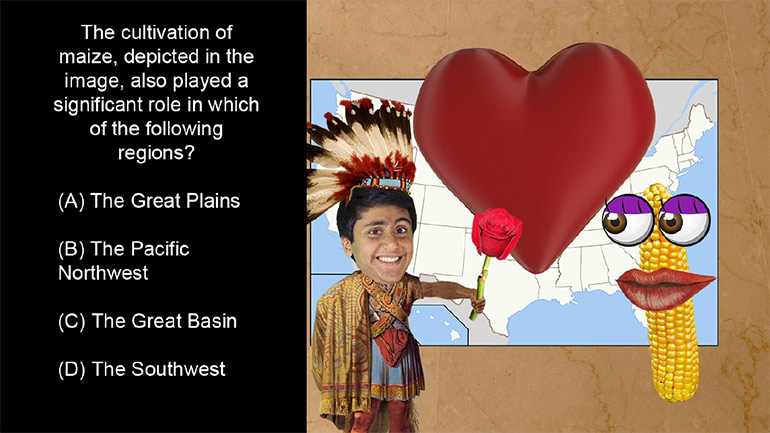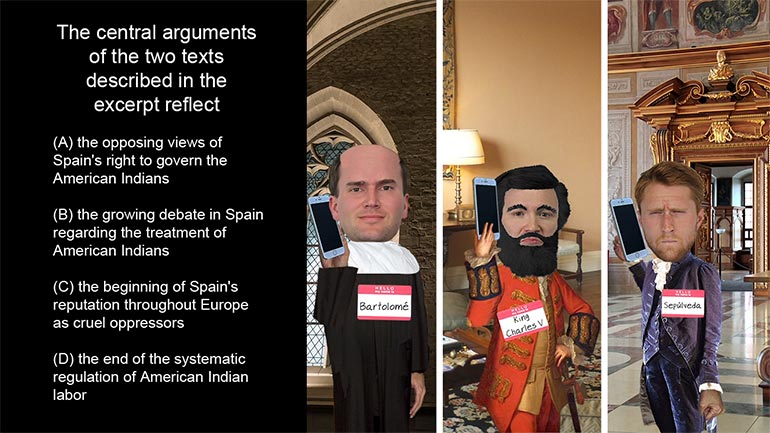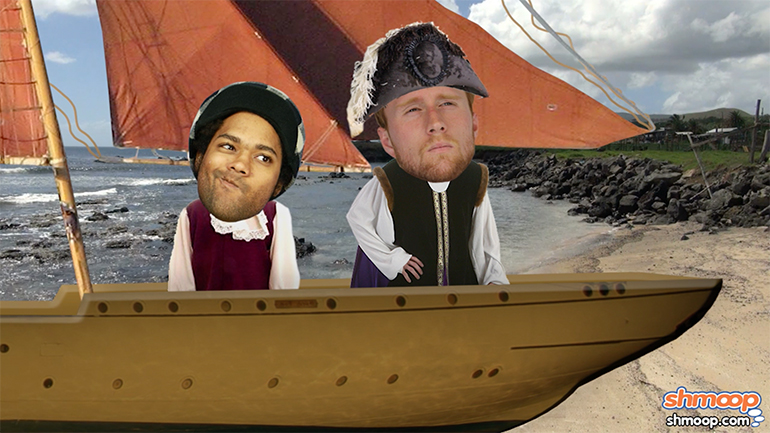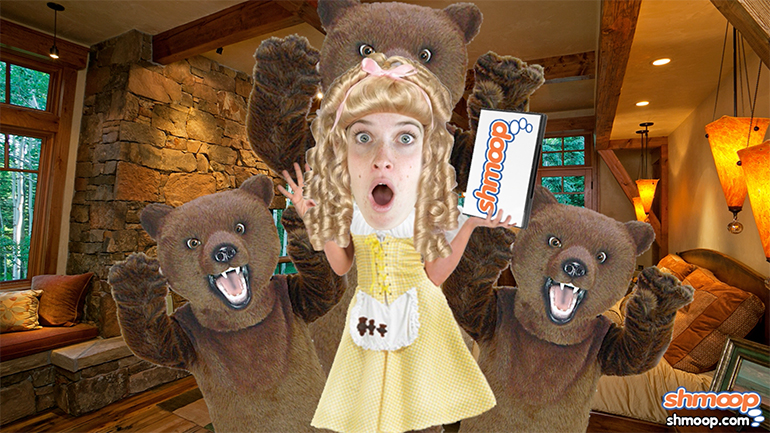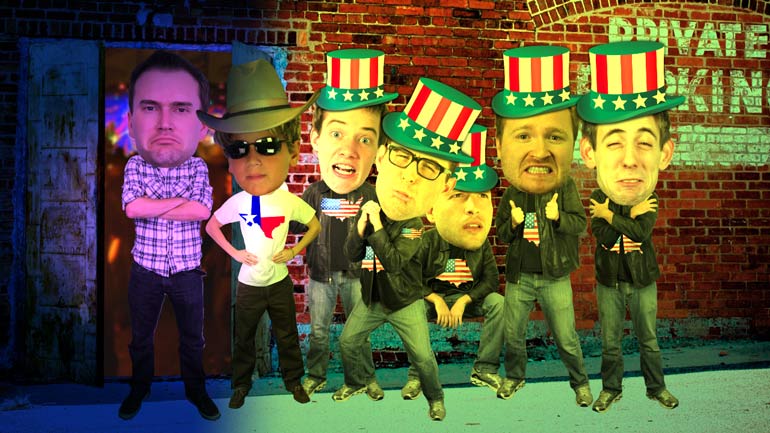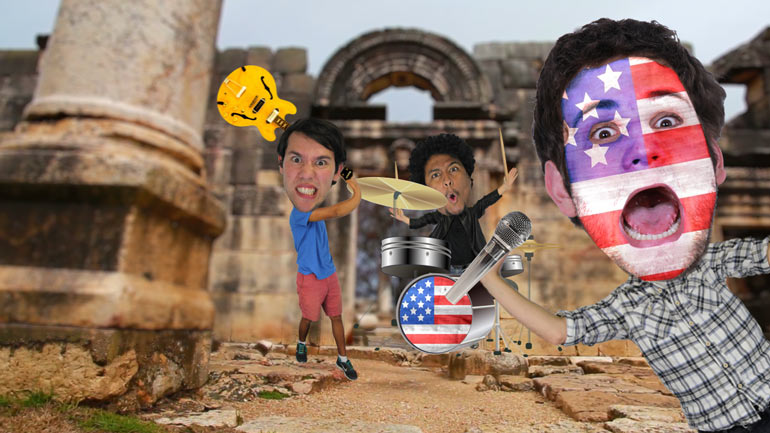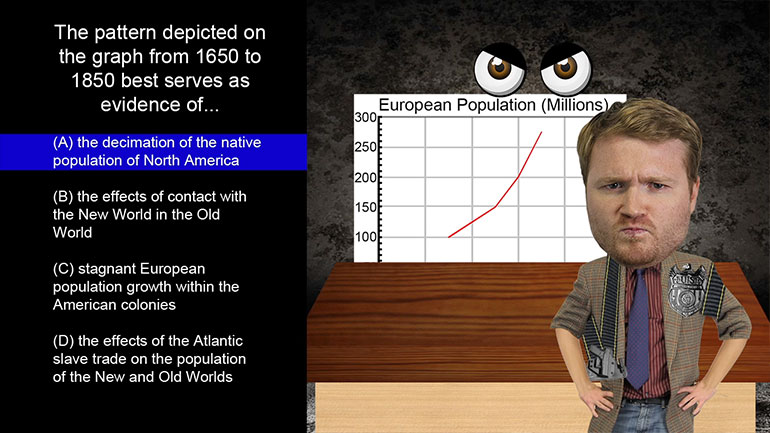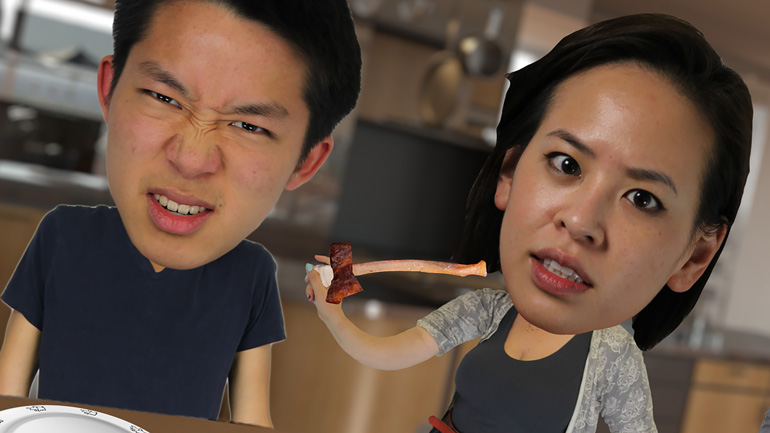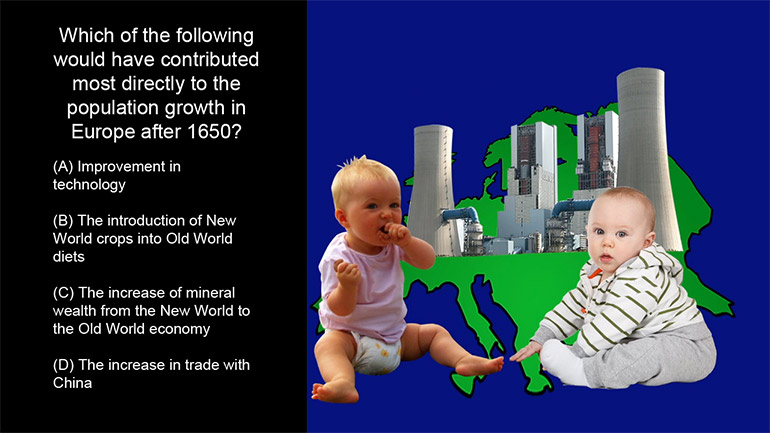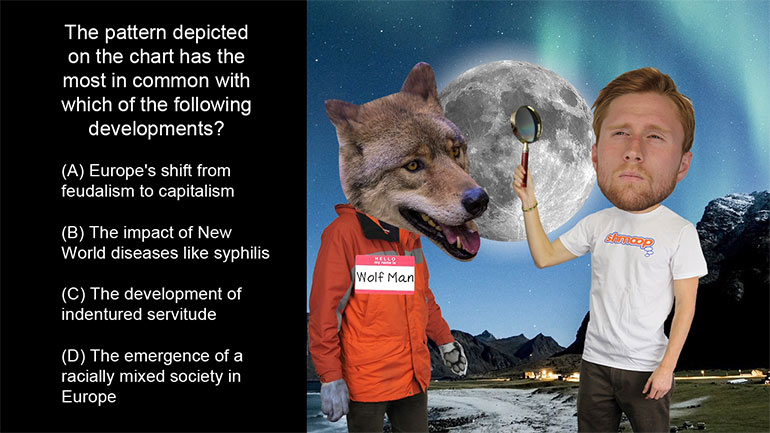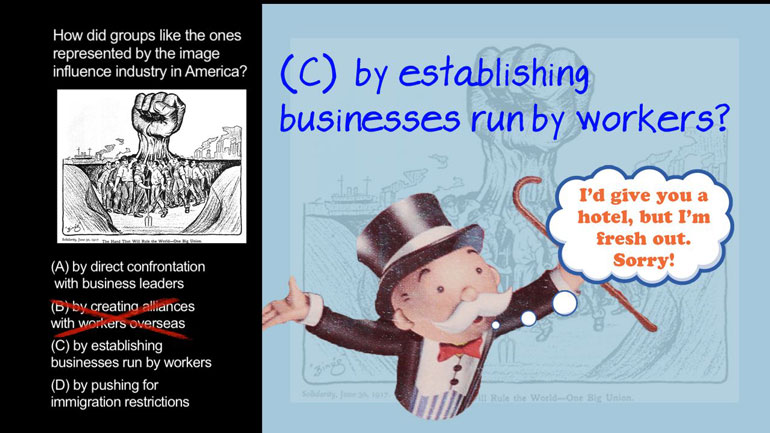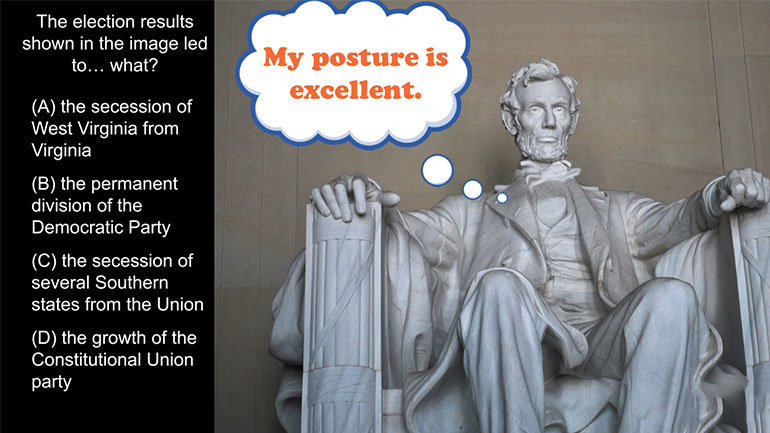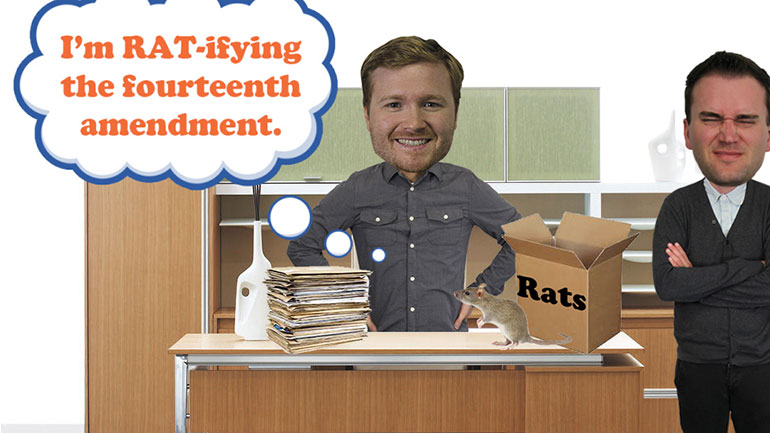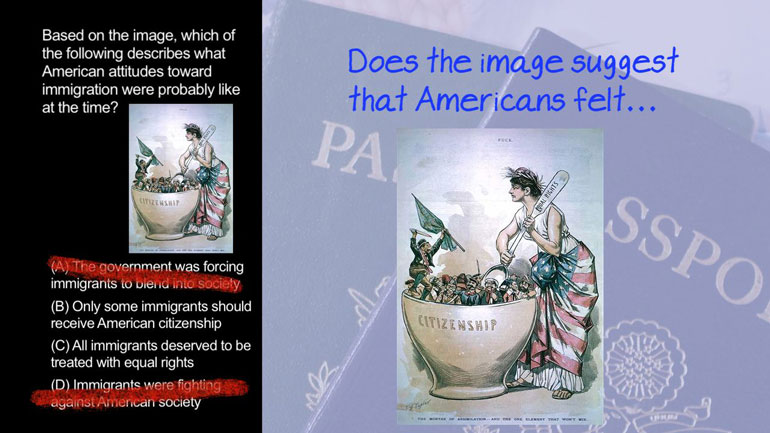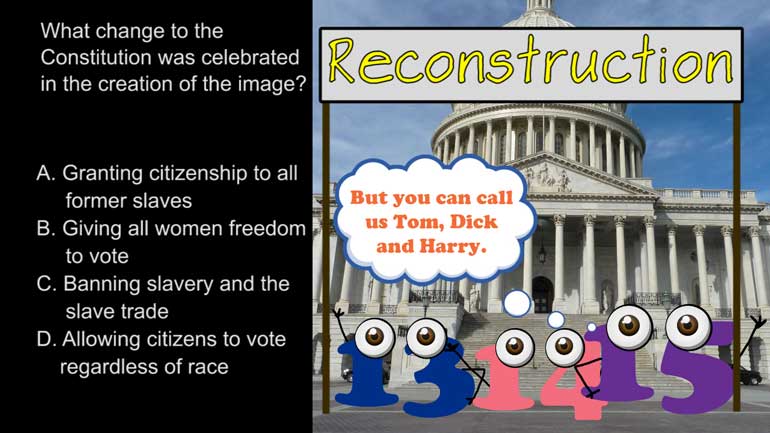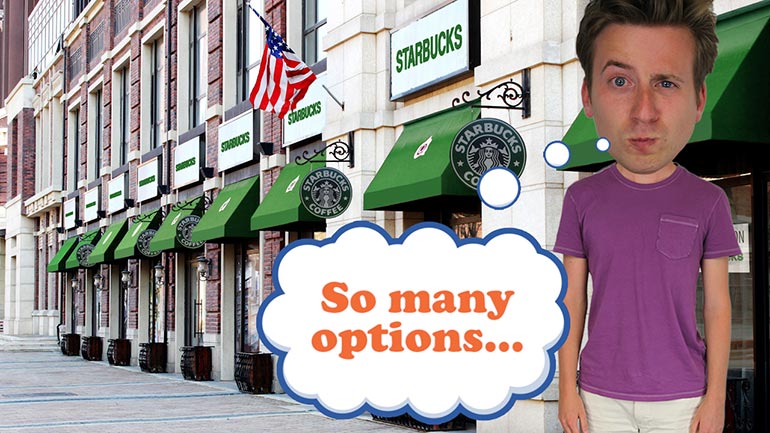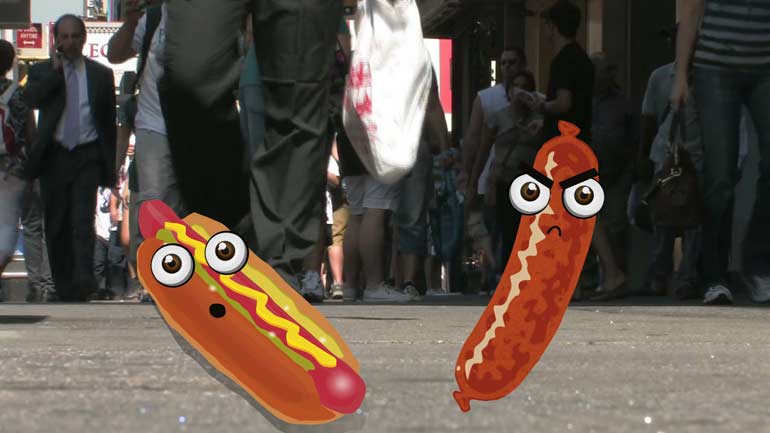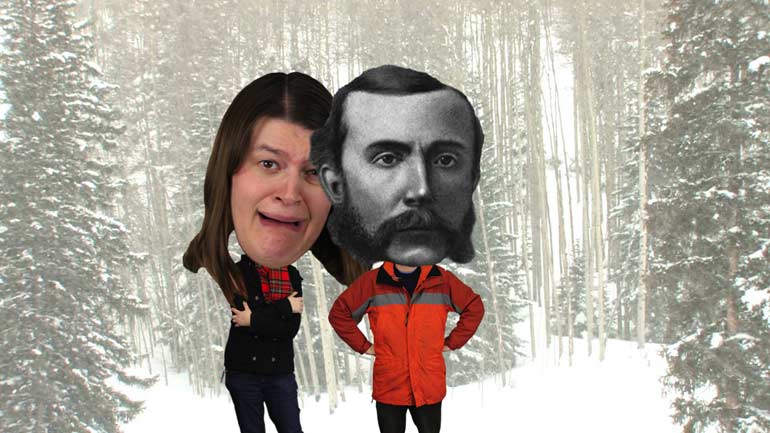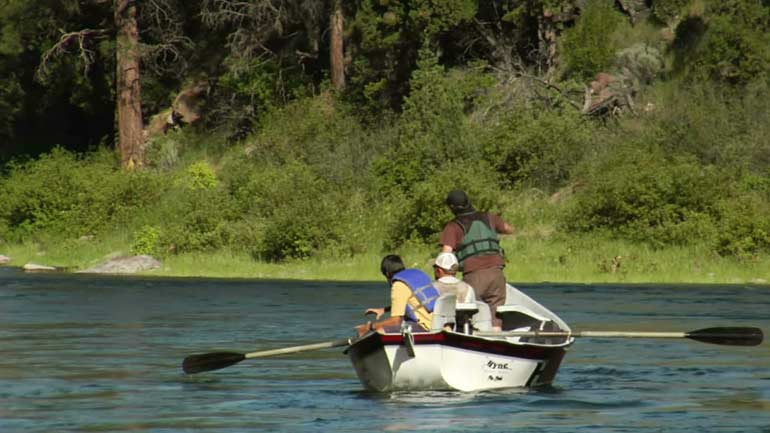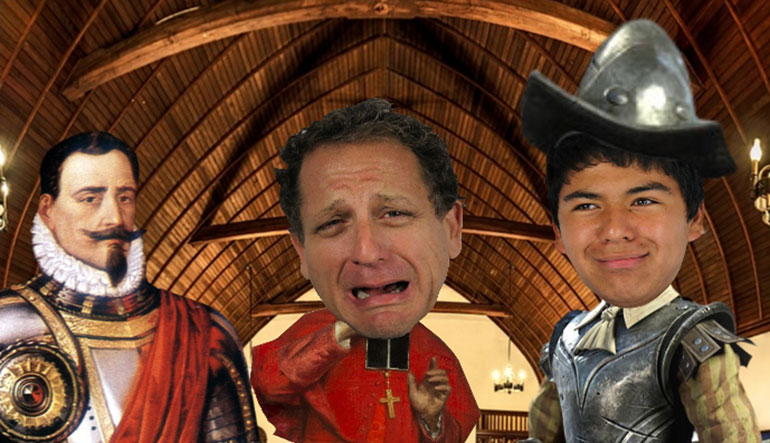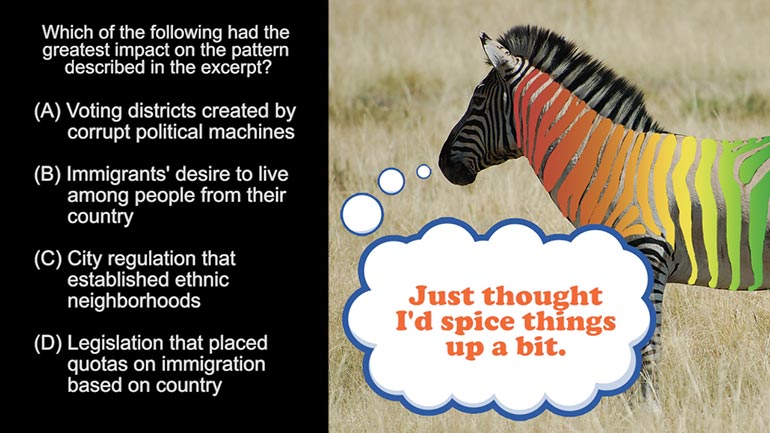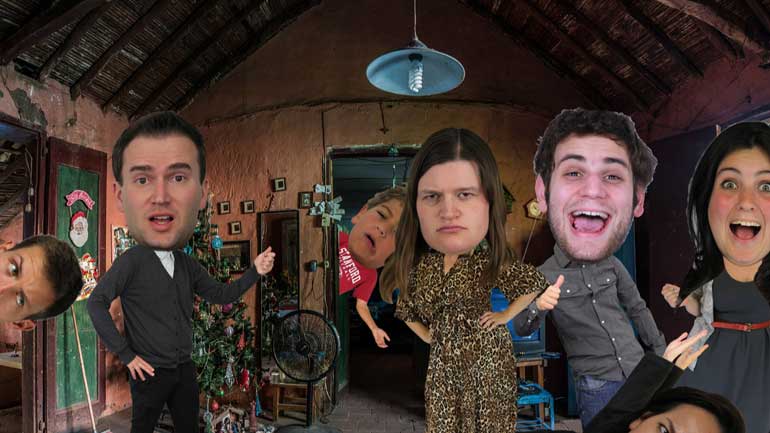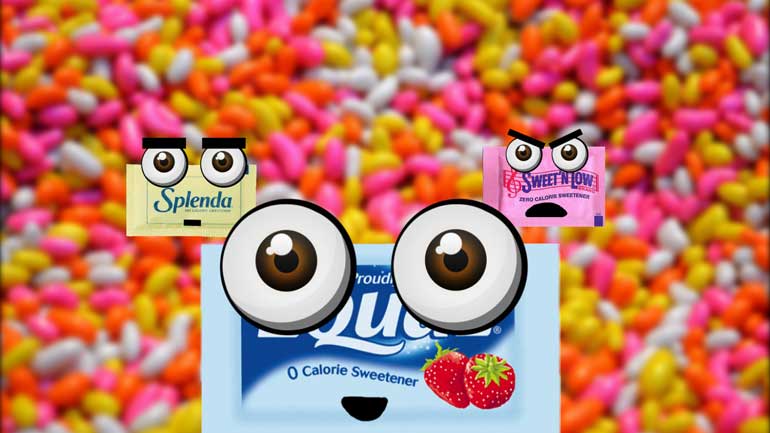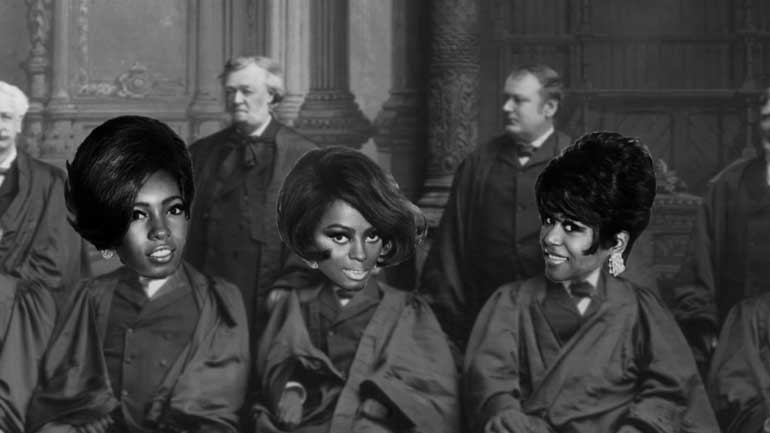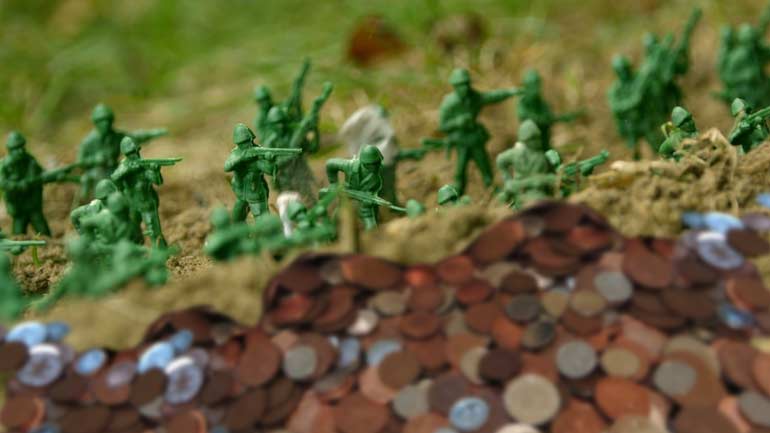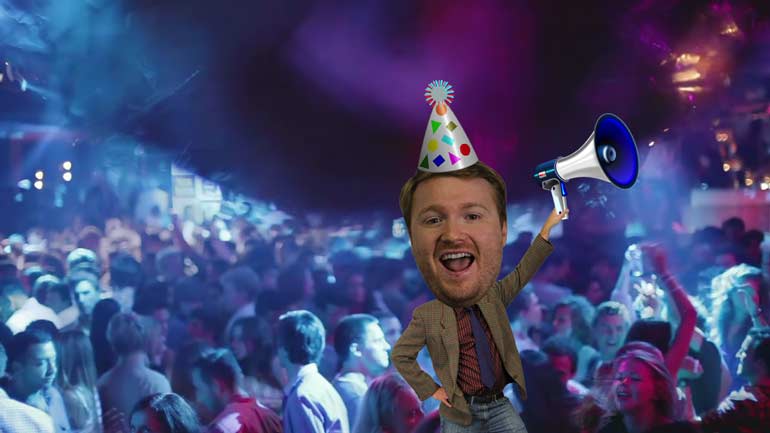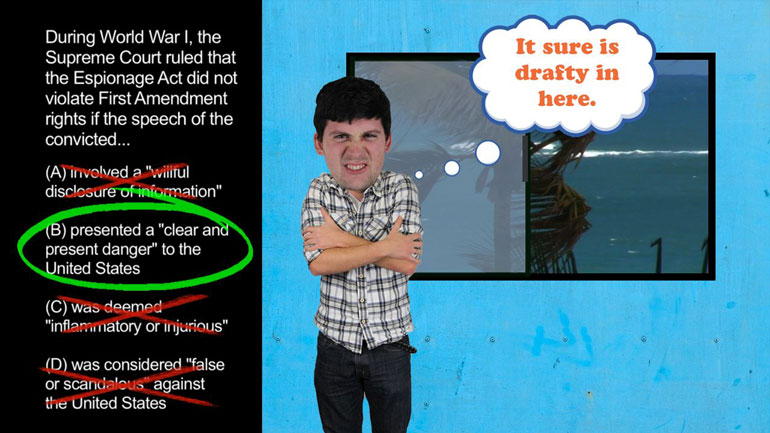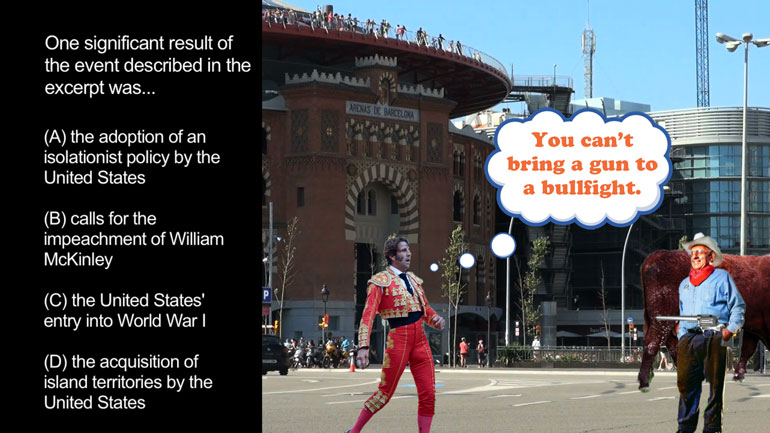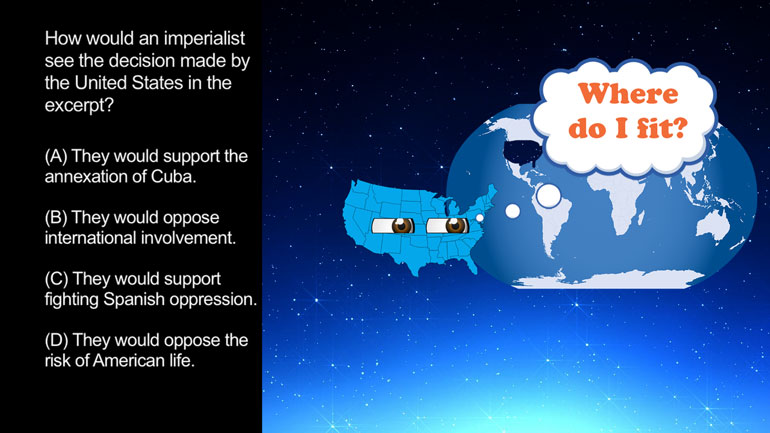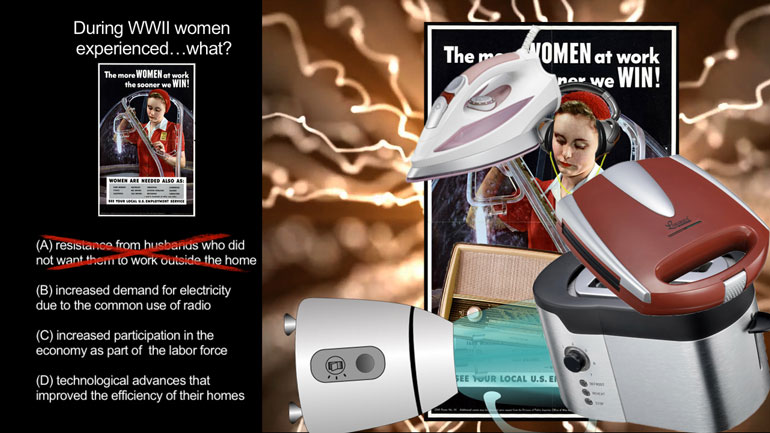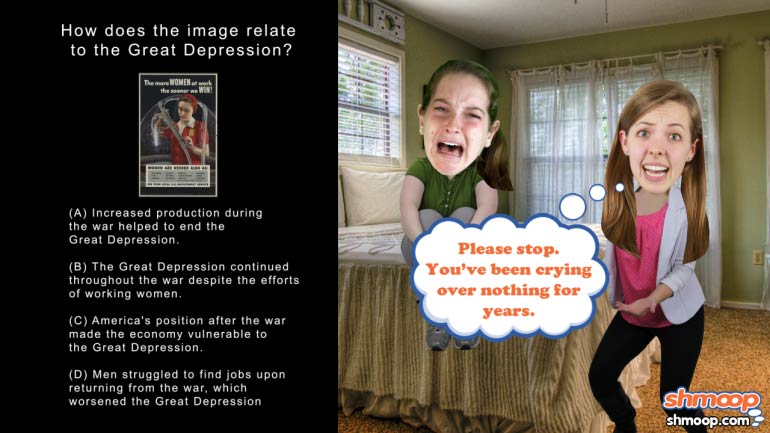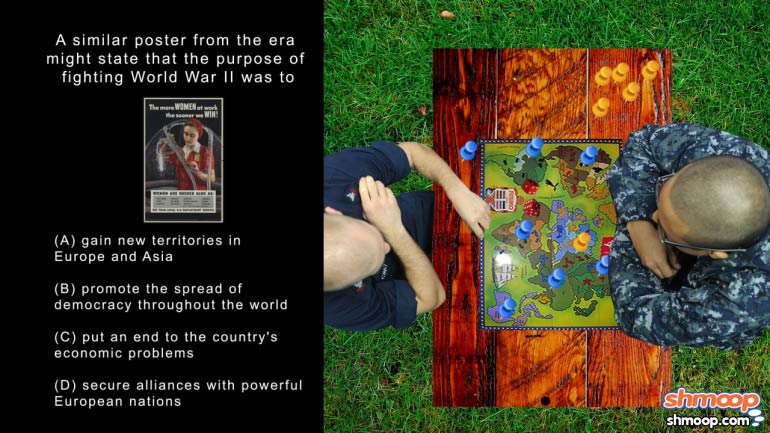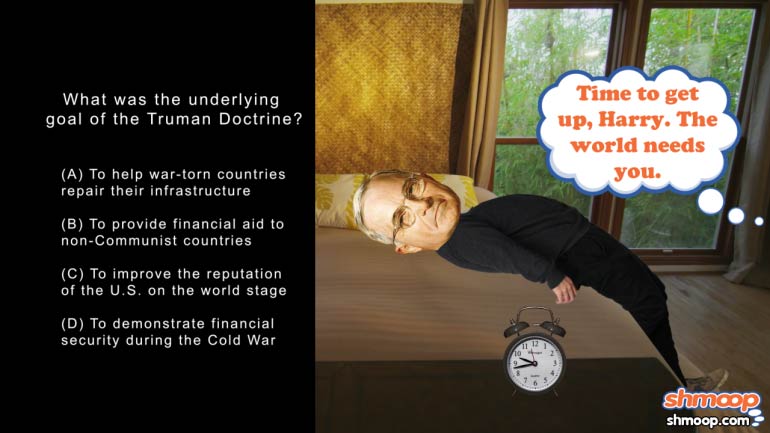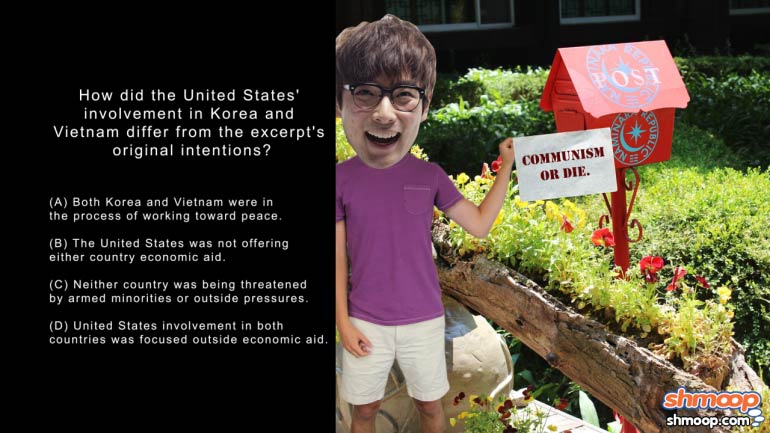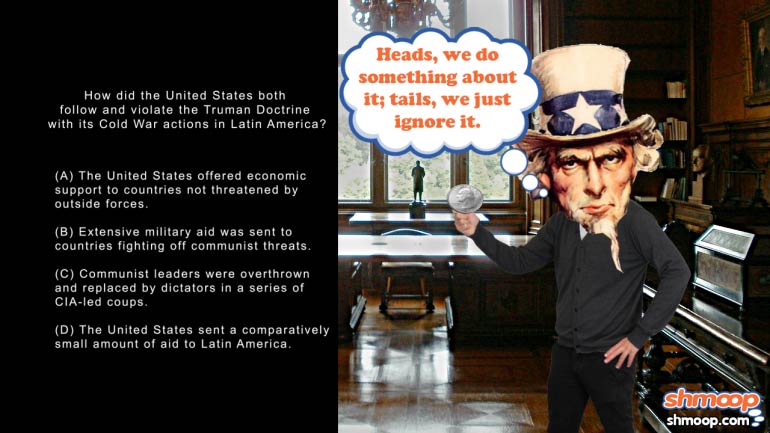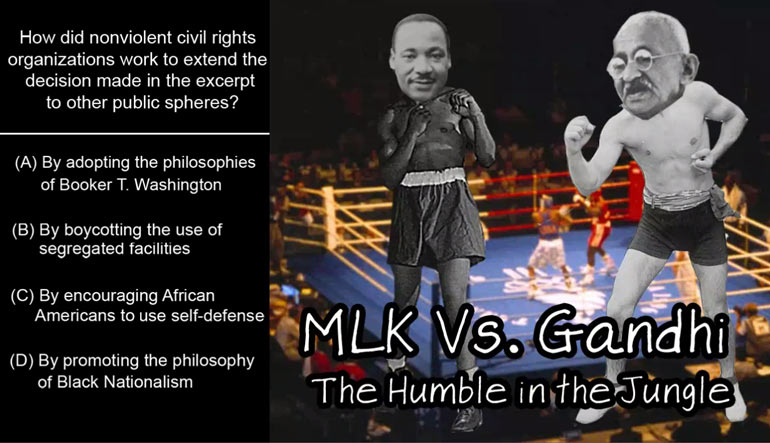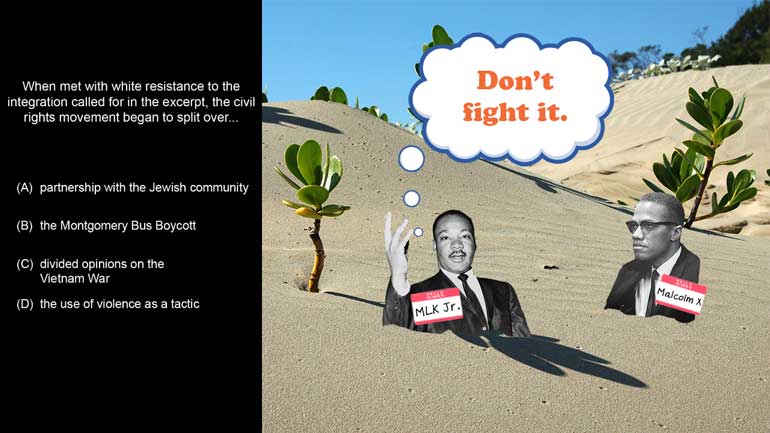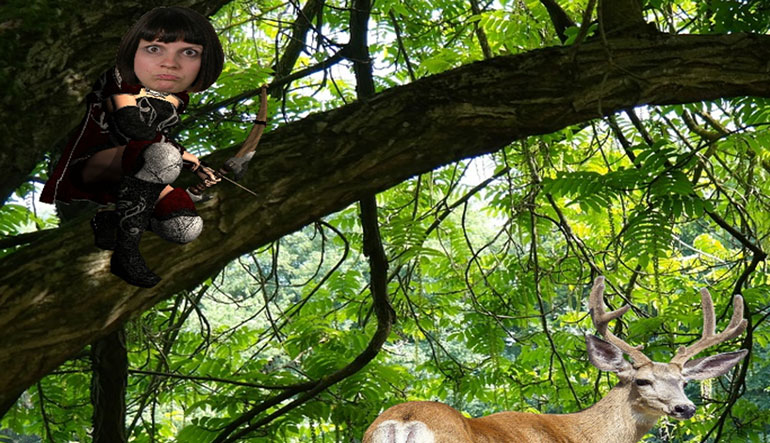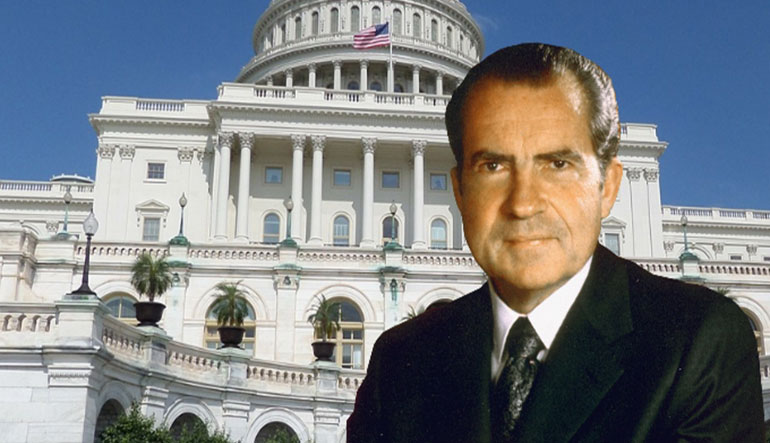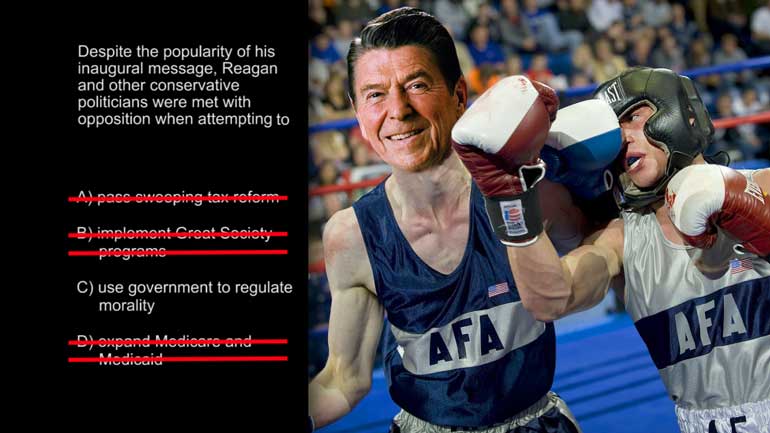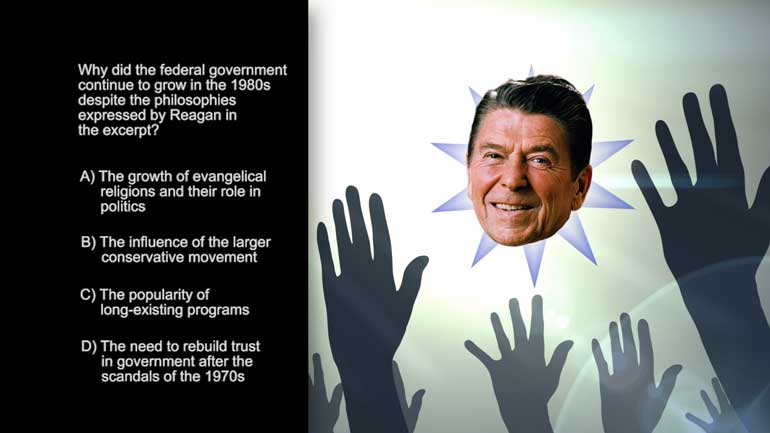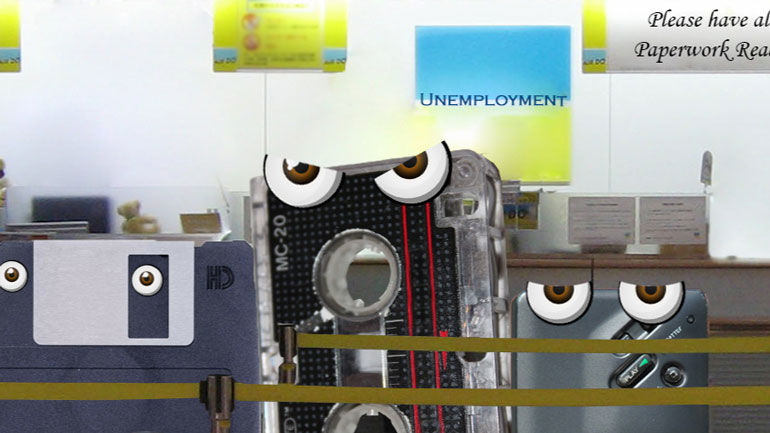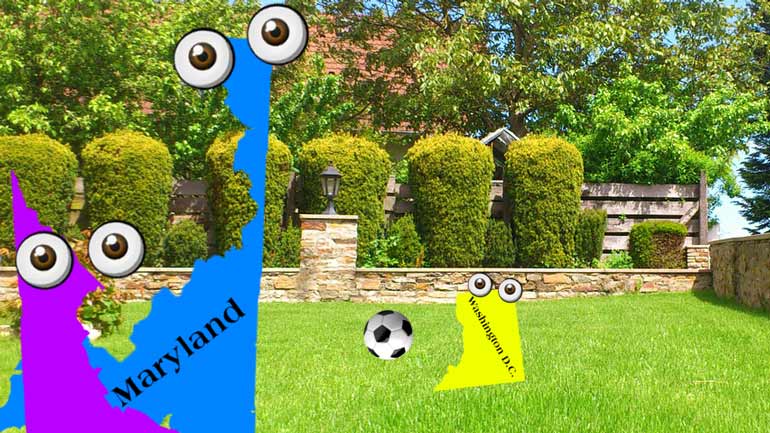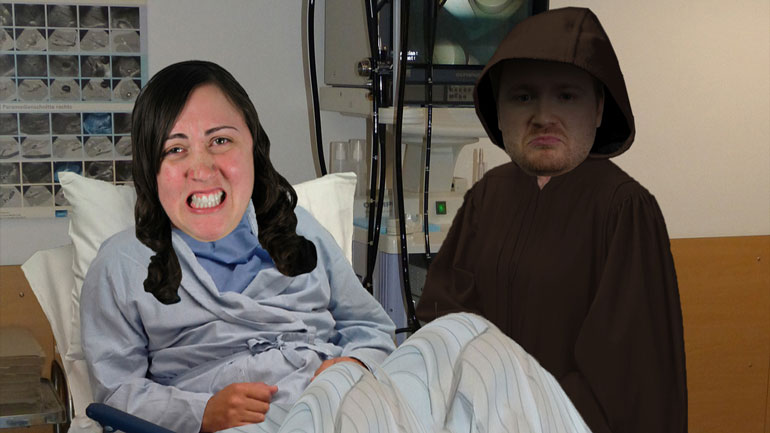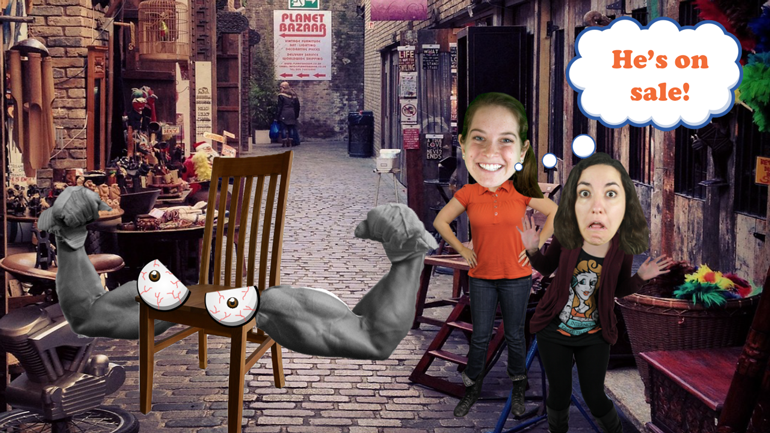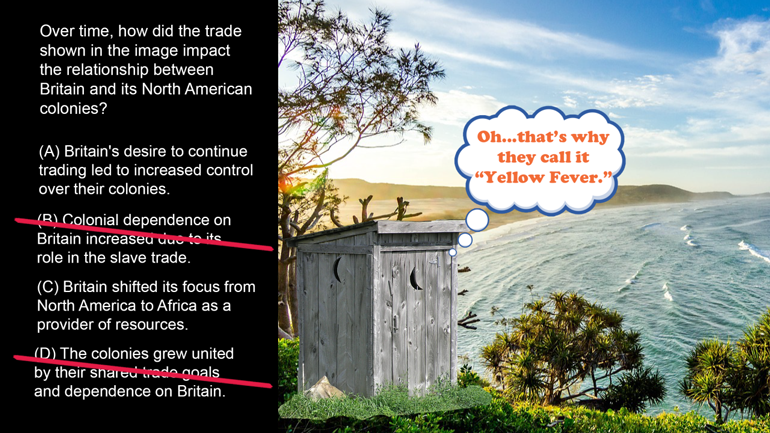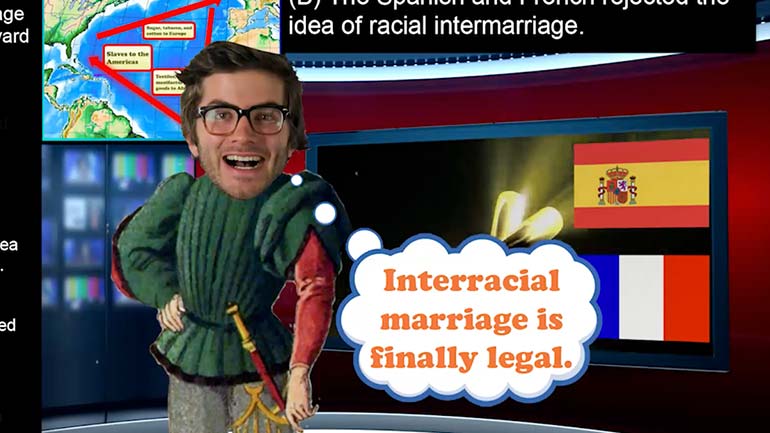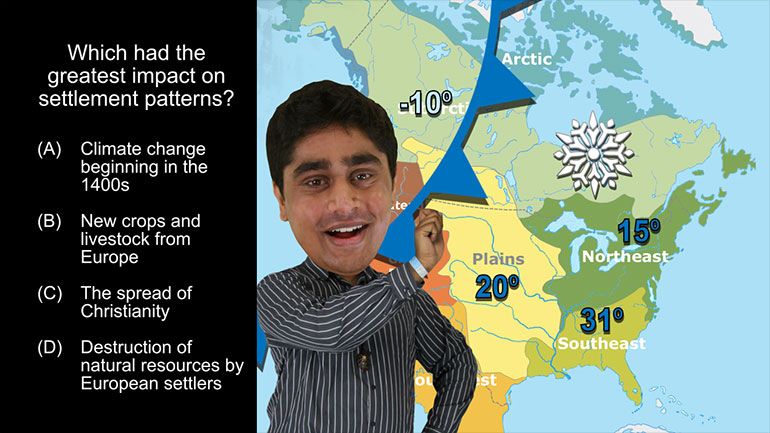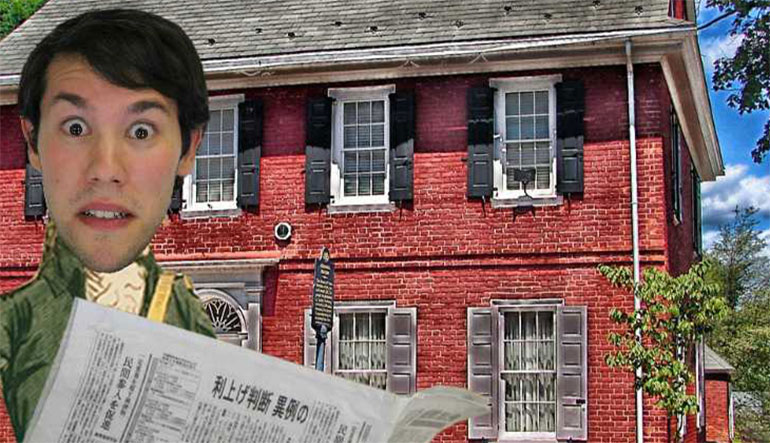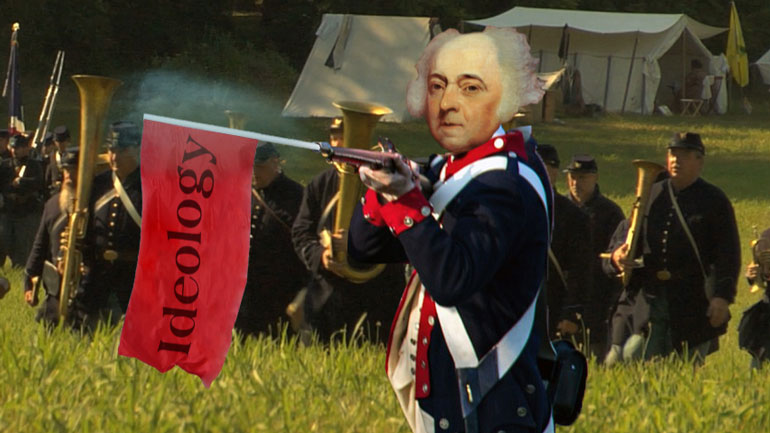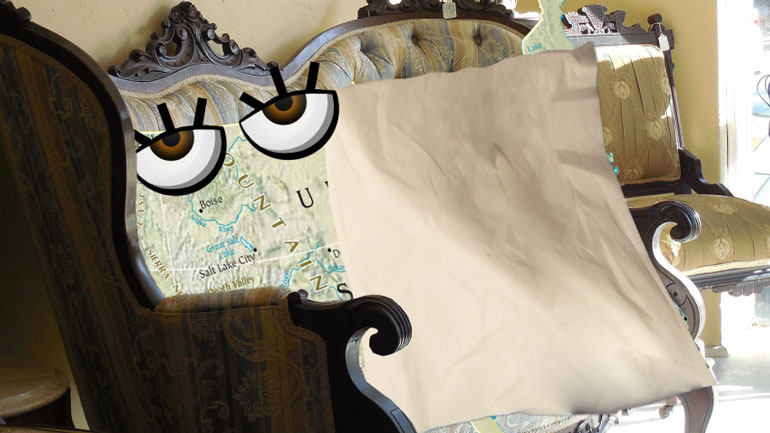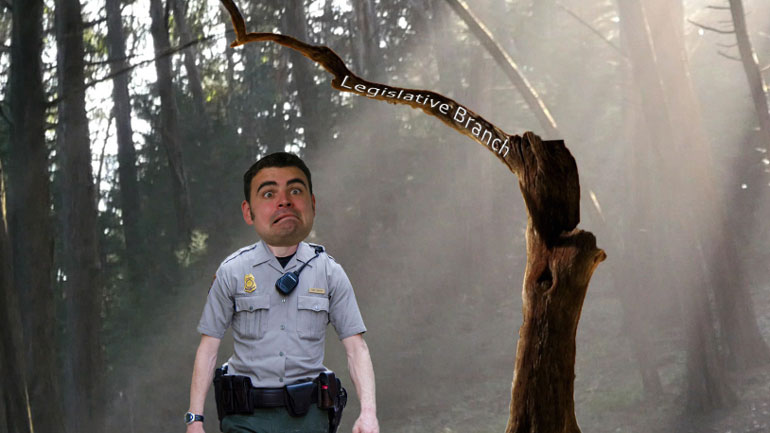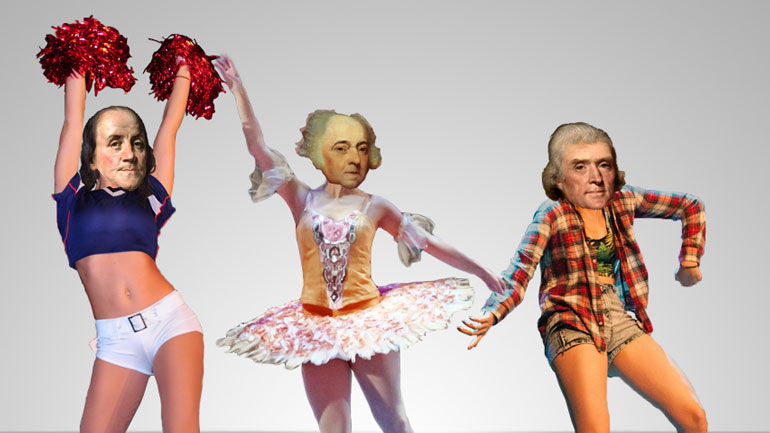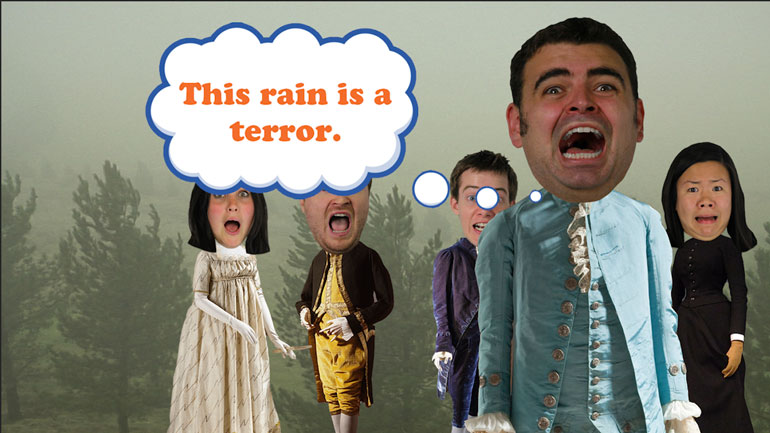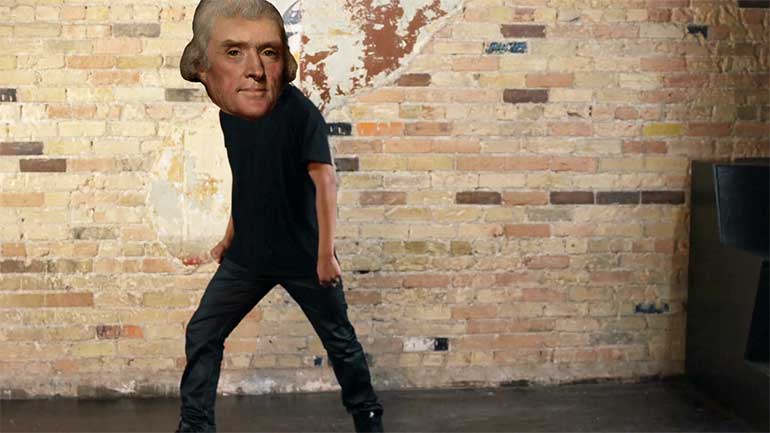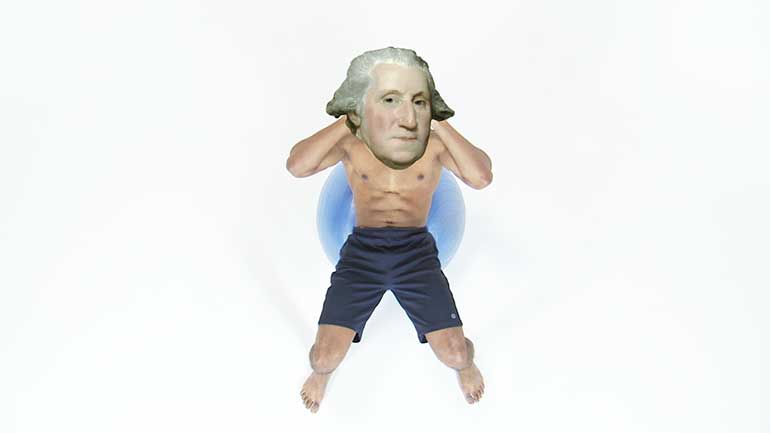ShmoopTube
Where Monty Python meets your 10th grade teacher.
Search Thousands of Shmoop Videos
AP U.S. History Videos 167 videos
AP U.S. History 3.1 Period 2: 1607-1754. Which of the following contributed most directly to the process seen in the image?
AP U.S. History Period 1: 1491-1607 Drill 3, Problem 2. The cultivation of maize, depicted in the image, also played a significant role in which of...
AP U.S. History 3.2 Period 4: 1800-1848. The goals presented in the excerpt have the most in common with which of the following?
AP U.S. History Diagnostic 11 185 Views
Share It!
Description:
AP U.S. History Diagnostic 11. The election results shown in the image led to...what?
Transcript
- 00:00
[ musical flourish ]
- 00:03
And here's your Shmoop du jour, brought to you by sore losers,
- 00:07
blisters with self-esteem issues.
- 00:10
Thank you, Dr. Scholl's. All right.
- 00:12
The election results shown in the image - this one, right here -
Full Transcript
- 00:16
led to... what? And here are your potential answers.
- 00:19
[ buzzing ] [ mumbling ]
- 00:23
[ mumbling continues ]
- 00:26
All right. Abraham Lincoln's election brought a largely anti-slavery
- 00:31
party to the White House, which didn't sit too well with
- 00:33
many slave-owning Southerners.
- 00:35
So let's see which answer best describes the country's
- 00:38
change in posture - like that,
- 00:40
sit up straight -
- 00:41
following Lincoln's ascendency as president.
- 00:45
Did the election results in the image lead to A -
- 00:48
the secession of West Virginia from Virginia?
- 00:51
Well, the two states did in fact split
- 00:54
by late 1861,
- 00:55
but this was more of a result of events that transpired
- 00:58
because of the 1860 election.
- 01:01
So we're two degrees removed here. So not A.
- 01:04
Could this election have led to B -
- 01:06
the permanent division of the Democratic Party?
- 01:09
Well, the nation's political landscape was even more divided
- 01:12
following the 1860 election, but in the years
- 01:15
following the Civil War, the two-party system was largely restored,
- 01:19
with Democrats coming back together and offshoots
- 01:21
like the Constitutional Union party dying out.
- 01:24
So that knocks out B and D.
- 01:26
Which means that the 1860 election led to C -
- 01:29
the secession of several Southern states from the Union.
- 01:34
Concerned that Lincoln would abolish slavery,
- 01:36
which - spoiler alert - he did,
- 01:38
many Southern states decided to secede from the Union,
- 01:41
leading to the U.S. Civil War.
- 01:43
So the correct answer is C.
- 01:46
In fact, some Southern states had seceded
- 01:48
before Lincoln was even inaugurated as president.
- 01:51
Talk about jumping the gun.
Related Videos
Ever heard of a "living document"? They eat and breathe just like the rest of us! They even walk around on their own two legs. Okay, fine—maybe t...
If the Puritans had gotten their way, religion would play a much larger role in lawmaking these days. Want to know more? Watch the video for all th...
What happened between the creation of the Articles of Confederation and the ratification of the current U.S. Constitution? This video analyzes the...
The Modernists thought the world had a lot of problems, and they were intent on fixing them—or at least talking about fixing them. Unfortunately,...
This video explains Federalism and the quest for a fair balance between state and national power. It covers the progression and compromises of Fede...

